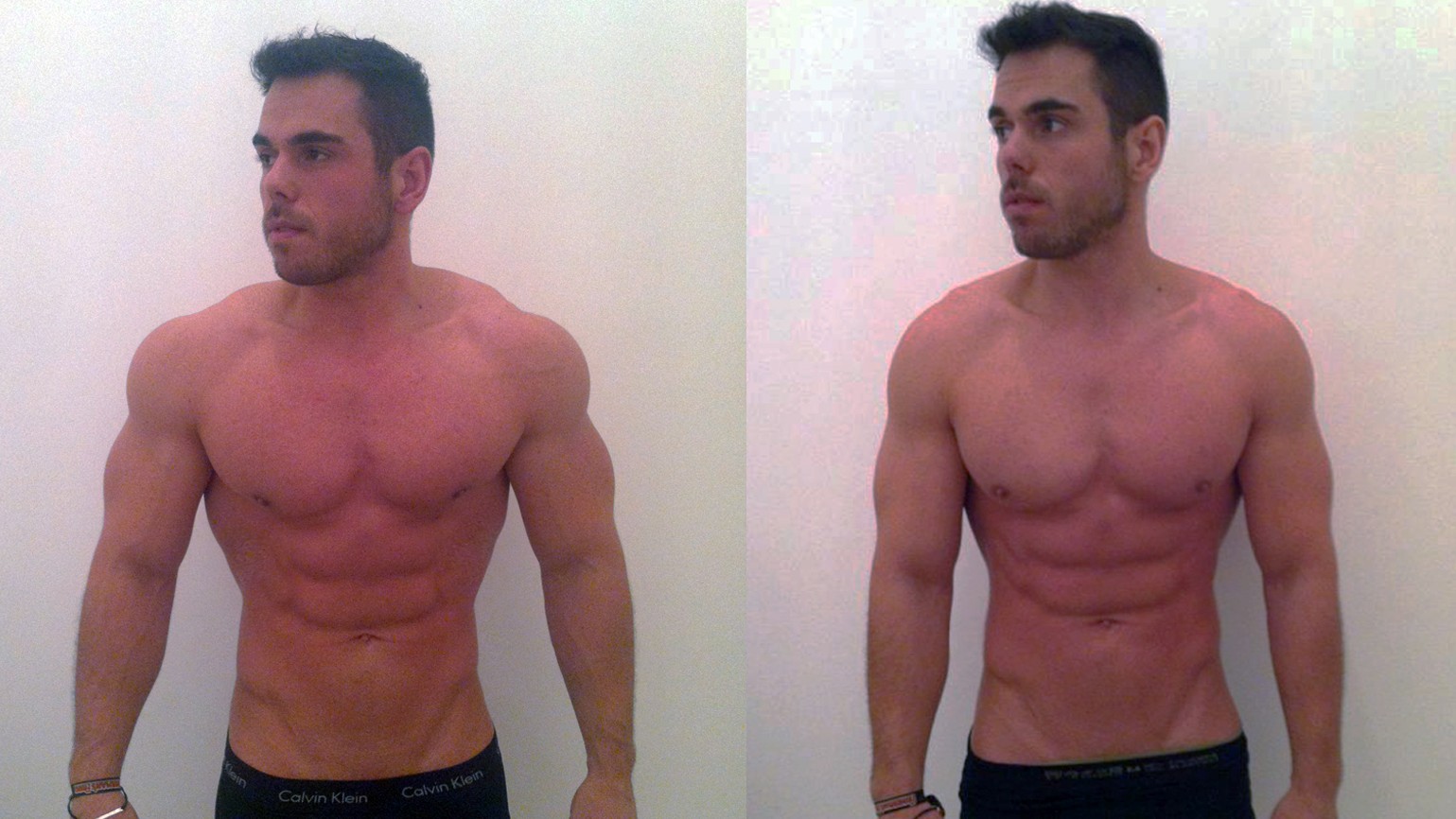Extreme weight cutting experiment
Just how bad are the weight cuts some MMA fighters have go through before a bout? Sports scientist Ross Edgley decided to find out.

Cutting weight is a common practice in combat sports, with athletes using rapid weight-loss techniques to lose significant amounts of bodyweight to make their designated category. Sometimes the consquences are dire, such as the fighter getting dangerously ill and having to pull out of a fight or making weight but being so depleted they can't perform in the cage or ring. Sports scientist Ross Edgley set out to explore what the body goes through during a cut by taking on one himself.
I mean it wholeheartedly when I say don’t try this at home because although athletes in combat sports have been manipulating their weight in this way for years, it should only ever be done under medical supervision. I must also stress that this is not a method of sustainable weight loss or healthy living but rather an experiment in which I, as a fitness writer, am taking an in-depth look at weight manipulation. Hopefully, after reading this article you’ll better understand how easily your bodyweight can be manipulated with this kind of physiological trickery.
So here’s a breakdown of my cut – the hardest 24 hours of my life:
It’s 9pm and I finish my last proper meal – BBQ ribs and a small pizza – before my first weigh-in. I strip down, step on to the scales and find that I weigh a sizeable yet healthy 95kg. According to UFC guidelines this makes me a heavyweight (94.8kg and above). Cutting down to middleweight (84kg) shouldn’t be a problem, but I’m going to push it as far as I can to see how much it’s possible to lose in 24 hours. Again, don’t try this at home.
Sweat dreams
I go to sleep under three quilts wearing five layers of clothes in the hope that I can get a head start by shedding some water weight during the night, and wake at 10:30am to find I slept surprisingly well. A common mistake among fighters is to use weight-cutting techniques that leave them sleep deprived. This sends production of the stress hormone cortisol through the roof, which affects neurotransmitters in the brain that are associated with motivation and focus, affecting the amount of leptin the body produces. Leptin is a hormone associated with feeling full, and lack of sleep makes you produce less of it, which means those hunger pains you experience later in the day become even more intense. Put simply, if you’re sleep-deprived you’re also hormonally disadvantaged during a weight cut.
As much as 50 to 70% of bodyweight is made up of water, so to complement my sweaty night’s sleep I employ another sneaky trick: an uncomfortably hot Epsom salt bath. Epsom salt is made from magnesium sulfate and can extract moisture from the body. The idea is to cook yourself like a lobster in a bathtub and add some light seasoning in the form of Epsom salt with the goal of losing a couple of kilos in water weight. It works. I’m already 2.26kg lighter and well into the Middleweight category. I’ve got the rest of the day ahead of me and I’m wondering how much further can I take this.

At 11:30 I eat my breakfast, but instead of my usual whey protein shake, porridge oats, yoghurt and berries I have a kind of home-made baby food and a powerful multivitamin. The baby food is a weird mix of greens powder and whey protein with a small amount of yoghurt and coconut oil to blend it together. The idea is that it’s high in protein, vitamins and minerals to keep me feeling full but low in water and carbohydrates so I don’t store weight. I feel mildly satiated but more importantly my body is supplied with the vitamins, minerals and micronutrients it will need to handle the trauma it’s about to endure over the rest of the day.
Get the Coach Newsletter
Sign up for workout ideas, training advice, reviews of the latest gear and more.
Water works
Carbohydrates stored in our muscles make up a sizeable amount of our overall body mass (for every kilo of muscle, 18g is carbs, and for every gram of carbs there are 3.5g of water), so I do a workout specifically designed to deplete muscle glycogen. A study published in The Journal Of Physiology showed that low-intensity cardio such as jogging or steady cycling is better for depleting glycogen than high-intensity training because slow-twitch muscle fibres are the first to be depleted during exercise. I hit the treadmill for a slow 45-minute jog and wrap myself in black bin-bags to increase the amount I sweat.

I finish by 2pm and it’s one of the hardest workouts I’ve ever done. To make things worse, the only water I allowed myself was a diuretic-ridden 100ml bottle of water containing vitamin C and dandelion root. The purpose of this was to ensure that my body didn't store even the small amount of water it was allowed. Stepping off the treadmill I manage to resist the lure of the water fountain and make it to the scales in the changing room. Unpeeling myself from layers of clothes and black bin bags I step on to the scales and find that I now weigh 89.3kg. I have lost 5.7kg and still have seven hours of this crazy experiment left to go.
From 2pm to 8pm I take more baths, eat some more of my home-made baby food and take naps under multiple quilts to increase the amount I’m sweating. By 6.30pm relations between my digestive system and me have taken a turn for the worse due to the lack of fluids in my system, and I feel terrible.
It’s 7.30pm and with the end in sight I enter the gym looking gaunt, but feeling surprisingly perky after taking 150mg of caffeine to get me over the final hurdle. This time I only manage 30 minutes on the treadmill, after which I crawl back to the changing room and head to the sauna for the final push.
Home and dry
At 8.30pm I emerge from the sauna barely sweating because my body has hardly any fluids left to lose. Half the man I was before the experiment, I put my prune-like body on the scales for the last weigh-in and clock in at 83kg – that’s 12kg lost in 24 hours. I immediately neck a pre-prepared two-litre bottle of water with diluted multi-vitamins and electrolytes, much to the amazement of a full changing room of guys who have no idea what I’ve endured over the past 24 hours.

I lost a massive amount of weight during this experiment, but it wasn’t pleasant and you couldn’t convince me to do it again. My body went through a type of self-inflicted trauma, and it felt like it. Ultimately, cutting weight is extremely hard and potentially dangerous. Never attempt it without medical supervision. This article is not intended to show you how easy it is, but rather how your body weight can be manipulated and the physiological and psychological effects this has.
For more information on Ross’s work, look him up on Facebook or Twitter. For more about the supplements he used, such as whey protein and glutamine, visit THE PROTEIN WORKS™ .

Ross Edgley wrote for Men’s Fitness UK (which predated and then shared a website with Coach) when he was a sports scientist, working for brands such as Myprotein. Edgley went on to perform a series of physical feats, including swimming all the way around Great Britain in 157 days. He has written the books Blueprint: Build a Bulletproof Body for Extreme Adventure in 365 Days, The World's Fittest Book and The Art of Resilience, as well as contributing to publications such as GQ.
